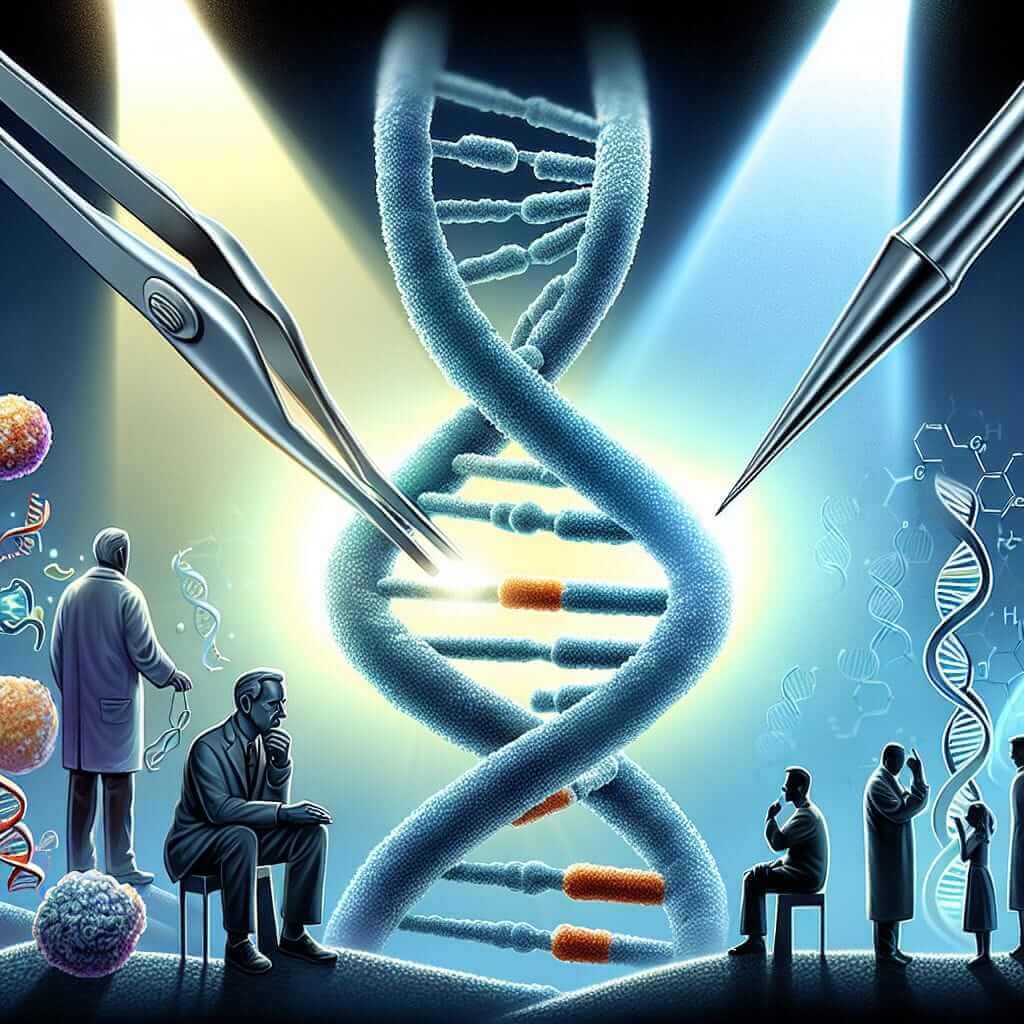The IELTS Reading section is designed to test your reading skills, including your ability to understand and analyze complex texts. One topic that has gained significant attention in recent years is gene editing in humans and its ethical implications. This article explores this topic in depth, providing a comprehensive reading exercise to help you prepare for the IELTS.
Gene editing in humans is a controversial subject that has appeared in various forms in the IELTS Reading section in the past. Given its relevance and the advancements in biotechnology, it is a topic that could very well appear in future exams. Understanding the ethical implications of gene editing can not only help you in the Reading section but also in the Writing and Speaking sections.
Reading Passage: What are the ethical implications of gene editing in humans?
Easy Text
Advancements in gene editing, especially with the advent of CRISPR-Cas9, have opened up possibilities that were once the realm of science fiction. Gene editing allows scientists to modify DNA, thus potentially eliminating genetic disorders, enhancing human abilities, and even extending lifespan. However, with these possibilities come significant ethical concerns.
Firstly, there is the issue of consent. Altering the genes of an unborn child means that the individual has no say in the changes being made to their genetic code. This raises questions about autonomy and the right to an unaltered genetic identity. Moreover, the long-term impacts of gene editing on human health are still largely unknown, posing risks to future generations.
Secondly, the accessibility of gene editing technology is another ethical concern. If available only to the wealthy, gene editing could exacerbate social inequalities, creating a society where genetic enhancements are a privilege of the rich. This could lead to discrimination against those who cannot afford such technology, widening the gap between different socio-economic groups.
Lastly, there is the ‘playing God’ argument. Many believe that humans should not have the power to alter life at such a fundamental level. They argue that gene editing interferes with natural evolutionary processes and could have unforeseen consequences on the natural world.
In conclusion, while gene editing holds immense potential for positive change, it also raises complex ethical questions that society must address.
Questions
-
Multiple Choice
-
Which technology is highlighted as a major advancement in gene editing?
- A. CRISPR-Cas9
- B. RNA sequencing
- C. Genetic mapping
- D. Cloning
-
What is one of the primary ethical concerns mentioned?
- A. The cost of gene editing
- B. The consent of the individual
- C. The feasibility of the technology
- D. The speed of modifications
-
-
True/False/Not Given
- The passage states that gene editing can enhance human abilities.
- The passage claims that gene editing will extend human lifespan.
- Gene editing has no known long-term impacts on human health.
-
Matching Information
- Match the following concerns with their descriptions:
- A. Consent
- B. Accessibility
- C. Playing God
- i. Raises questions about autonomy
- ii. Could exacerbate social inequalities
- iii. Interferes with natural processes
- Match the following concerns with their descriptions:
Answers
-
Multiple Choice
- A. CRISPR-Cas9
- B. The consent of the individual
-
True/False/Not Given
- True
- Not Given
- False
-
Matching Information
- A – i. Raises questions about autonomy
- B – ii. Could exacerbate social inequalities
- C – iii. Interferes with natural processes
Common Mistakes
When dealing with passages that involve ethical implications, students often misinterpret key points or overgeneralize information. Always read questions carefully and base your answers strictly on the information provided in the passage.
Vocabulary
- Autonomy (noun) /ɔːˈtɒnəmi/: Independence or freedom, as of the will or one’s actions.
- Inequalities (noun) /ɪˌnɪkwəˈlɪtiz/: The condition of being unequal; disparity.
- Enhancements (noun) /ɪnˈhɑːnsmənts/: Improvements or augmentations.
Grammar
- Relative Clauses: Used to provide additional information about a noun, e.g., “The gene editing technology, which has revolutionized biotechnology…”
- Modal Verbs: Used to indicate possibility, necessity, or other conditions, e.g., “Gene editing could exacerbate social inequalities.”
Conclusion
Understanding the ethical implications of gene editing in humans is crucial for not only your IELTS preparation but also for engaging with contemporary scientific debates. Focus on honing your ability to comprehend and analyze such texts thoroughly. Practice consistently with various topics, and always review both your correct and incorrect answers to continually improve.
Advancements in gene editing are bound to continue, making it a relevant and likely topic for the IELTS Reading section. Equip yourself with knowledge and practice to achieve the best results.

Tips for High IELTS Reading Scores
- Practice Regularly: Engage with a wide range of texts from different sources.
- Enhance Vocabulary: Focus on academic and subject-specific vocabulary.
- Time Management: Practice completing reading sections within the given time limits.
- Read the Questions First: Sometimes it helps to know what you are looking for in the passage.
By incorporating these strategies, you will be better prepared to tackle the Reading section of the IELTS and understand the broader implications of contemporary issues like gene editing.